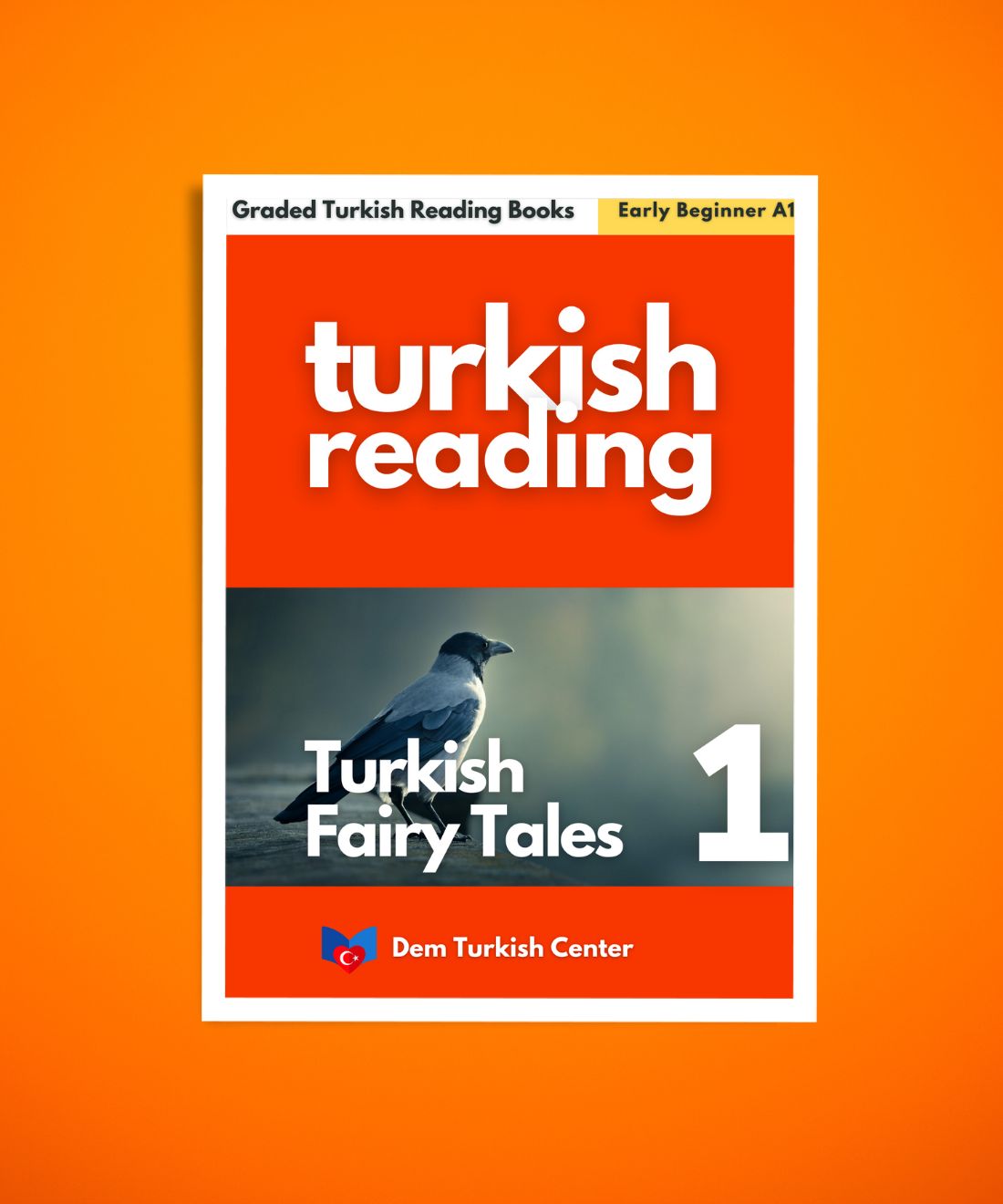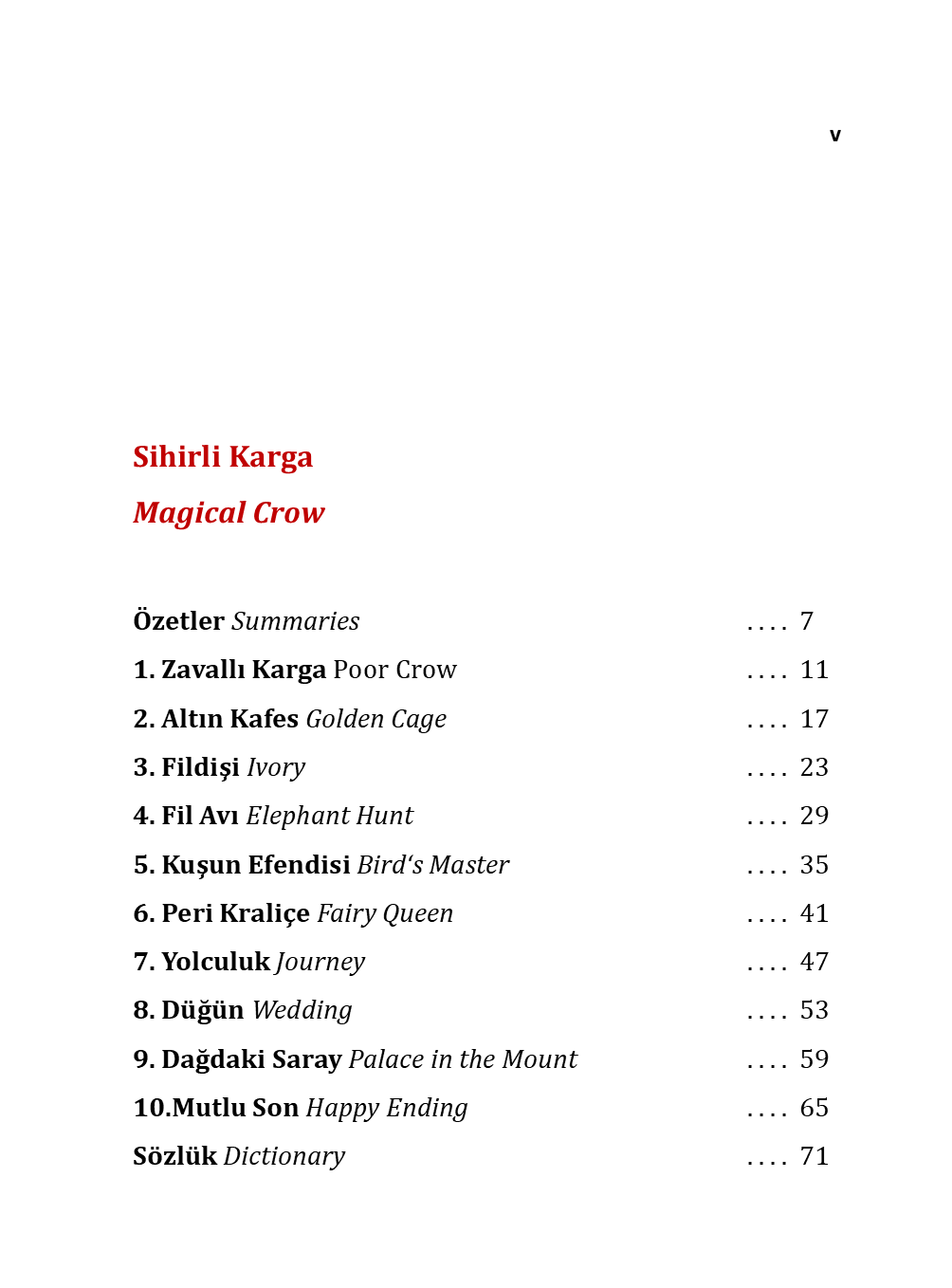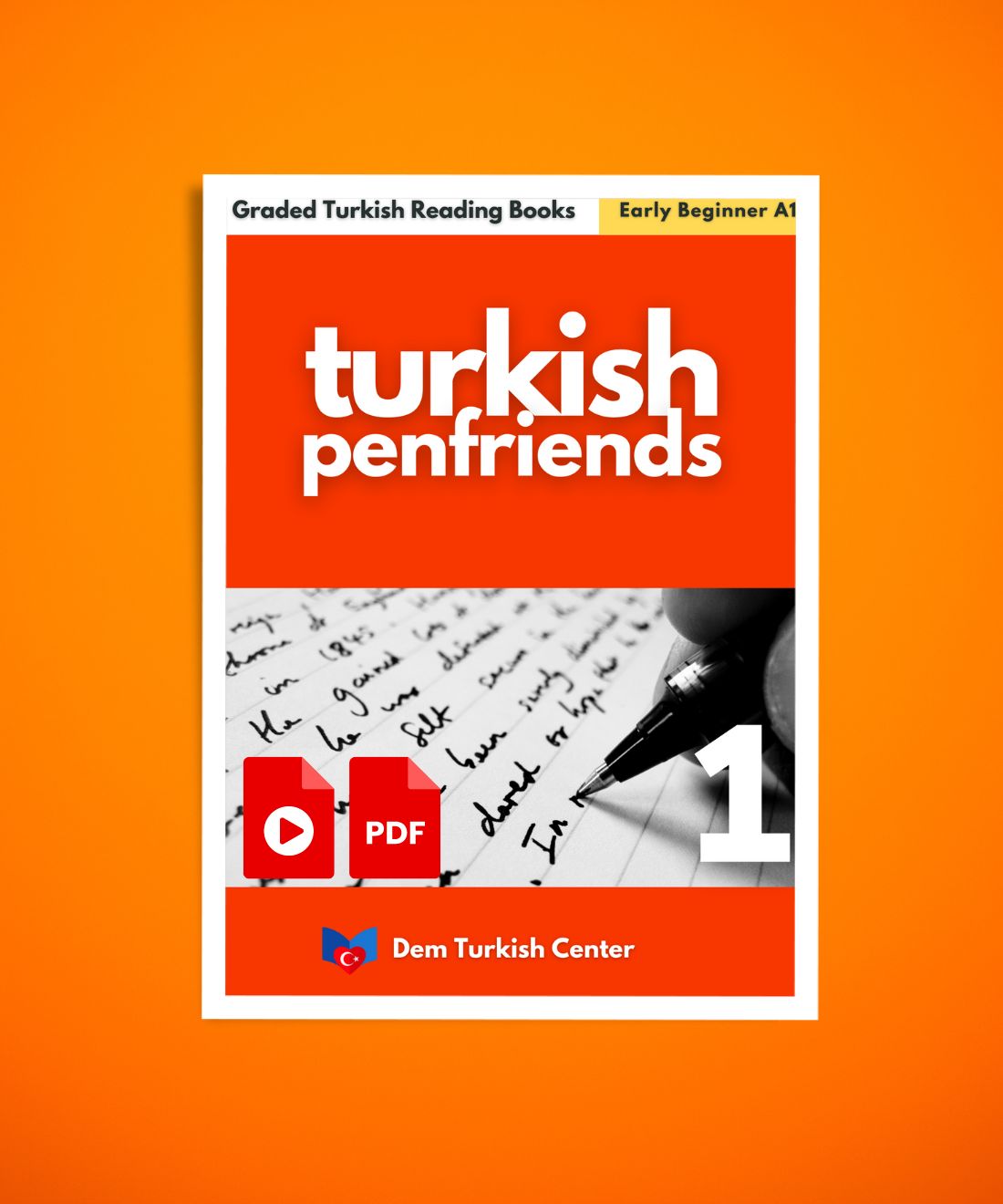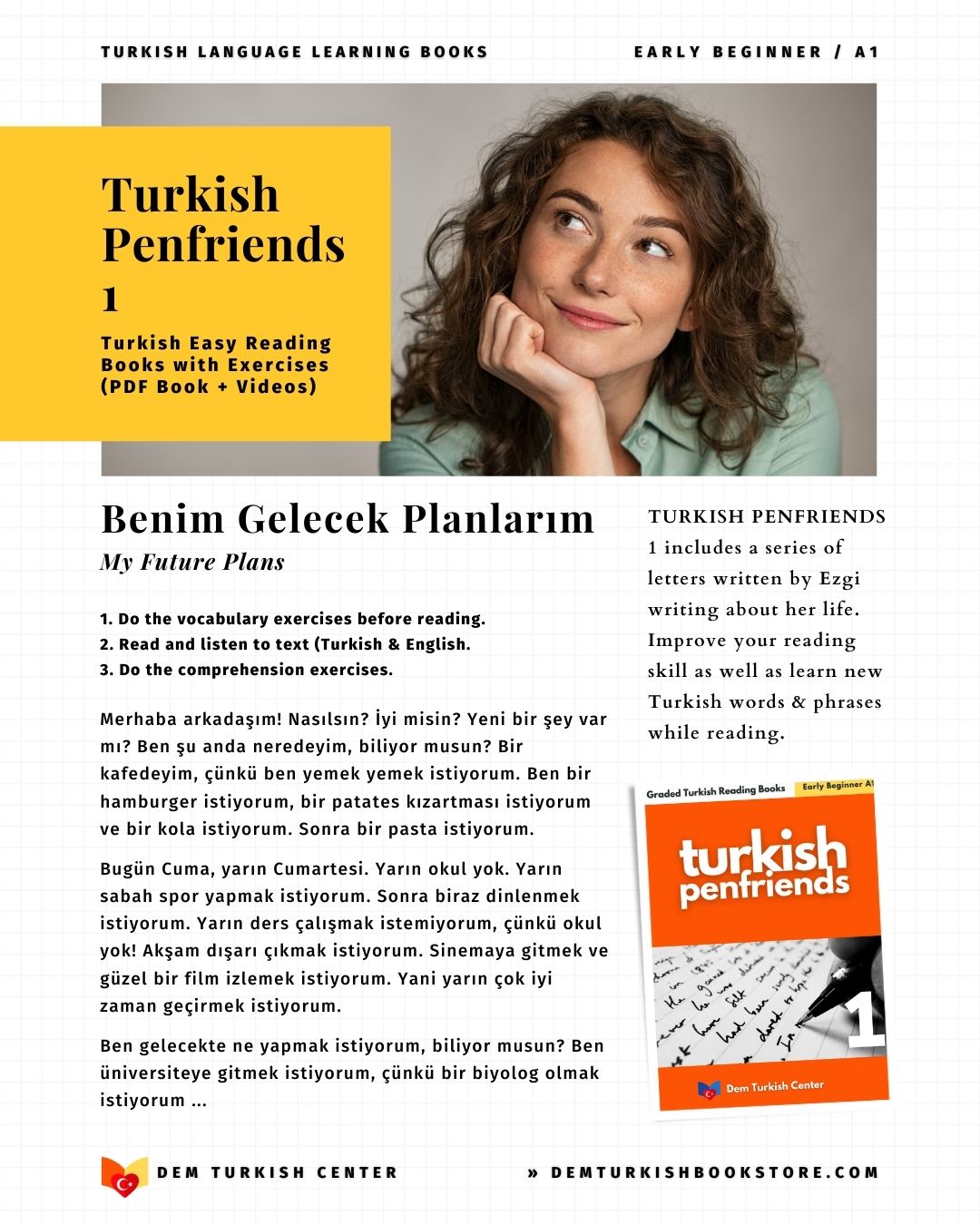
How to use the suffix MIS in Turkish
Do you know what is and how to form and use "- miş" suffix in Turkish language? Learn how to form and the functions of "- MİŞ Suffix" in Turkish in this short Turkish lesson.
How to form "- MİŞ Suffix" in Turkish
This suffix has 4 variations (- miş / müş / mış / muş). It is added to the end of the sentence.
- O bir doktor. O bir doktormuş.
- Hava güzel. Hava güzelmiş.
- O Türkçe biliyor. O Türkçe biliyormuş.
If the last letter of the word is a vowel, then you are adding the buffer "-Y-" to the suffix.
- O evli. O evliymiş.
- O evde. O evdeymiş.
- O hasta. O hastaymış.
This suffix never changes the verb form, it is added to the end of the verb, except for the past tense. The past suffix (- DI) is replaced with "-miş" suffix. For example:
- O film izliyor. O film izliyormuş.
- O film izleyecek. O film izleyecekmiş.
- O film izledi. O film izlemiş.
This suffix is usually used for the third person (depending on the function). If you are using this suffix with other persons (I, You, etc), then the suffix comes between the verb form and the personal suffix. For example:
- Ben bir doktorum. Ben bir doktormuşum.
- Ben yalan söylüyorum. Ben yalan söylüyormuşum.
- Sen bir doktorsun. Sen bir doktormuşsun.
- Sen yalan söylüyorsun. Sen yalan söylüyormuşsun.
This is how you form the - miş suffix in Turkish. Now learn how to use this sufix.
Download Turkish Grammar Course A2!
How to use "- MİŞ Suffix" in Turkish
The basic uses of this suffix is "surprise, discovery and reported speech".
Surprise
When you are surprised, when something that you didn't expect happens, you can add this suffix to the end of the sentence. For example:
- Hava güzel. Hava güzelmiş. The weather is nice (I am surprised, I didn't expect to see the weather is nice. It is nicer than I expected).
- Türkçe zor bir dil. Türkçe zor bir dilmiş. I am surprised, I didn't expect that Turkish is a difficult language. Turkish is more difficult than I expected).
- O Türkçe biliyor. O Türkçe biliyormuş He knows Turkish (I am surprised, I didn't know, expect him to know Turkish).
Discovery
When you discover something (that you didn't know), you can add this suffix to the end of the sentence. For example:
- Ali bir doktor. Ali bir doktormuş. Ali is a doctor (I thought he was a teacher. But apparently, as I discovered, he is a doctor).
- Türkiye güzel bir ülke. Türkiye güzel bir ülkeymiş. Turkey is a nice country (I thought Turkey isn't a nice country, but apparently, as I discovered, Turkey is a nice country than I thought).
- Ali çok iyi futbol oynuyor. Ali çok iyi futbol oynuyormuş. Ali plays football very well (I thought he doesn't play football very well, but apparently, as I discovered, he plays foorball better than I thought).
Reported Speech
Maybe the most common function - miş suffix in Turkish is reported speech, telling what you have heard. This suffix is commonly used when gossiping or telling a story or a tale, fairy tale because you are telling people what you have heard. For example:
- Ali tatile gidiyormuş. (I've heard, They say, He said to me) Ali is going on holiday.
- Ayşe İngilizce biliyormuş. (I've heard, They say, She said to me) Ayşe knows English.
- Murat bir eve alacakmış. (I've heard, They say, He said to me) Murat is going to buy a house.
- Derya Bodrum'da tatil yapacakmış. (I've heard, They say, She said to me) Derya is going to take a vacation in Bodrum.
- Tuna dün sinemaya gitmiş (I've heard, They say, He said to me) Tuna went to the cinema yesterday.
- Serkan yeni bir araba almış. (I've heard, They say, He said to me) Serkan has bought a new car.
- Duydun mu, Banu Hanım eşi ile kavga etmiş. Have you heard, Banu Hanım had an argument with his husband (as I've heard).
- Bir varmış, bir yokmuş... Bir ülkede yaşlı bir adam varmış. Bu adam ... Unce upon a time, there was an old man in a country. This man ... (I am telling a tale, fairy tale).
Download Turkish Grammar Course PI (Pre-intermediate)
Other Used of Suffix "- MiŞ"
Suffix "-MİŞ" is also used as:
Adjectives
- Pişmiş yemek cooked meal
- Bitmiş proje finished, completed project
- Okumuş çocuk educated (studied) child
Hypothetical Forms
This suffix is also used with the hypothetical situations like "As If, As Though" in English. For example:
- O uyuyormuş gibi yapıyor. He pretends to be sleeping.
- O benim babammış gibi davranıyor. He acts as if he was my father.
- Bugün yağmur yağacakmış gibi geliyor. It feels as if it will rain.
Probability
This suffix is also used as "May, might, must have" for probability. For example:
- Ali ne yaptı? What did Ali do?
- Ali film izledi. Ali watched a film. (Certain, I'm sure)
- Belki Ali film izledi. Maybe, Ali watched a film. (Maybe, I think)
- Ali film izlemiş olabilir. Ali may have watched a film.
- Ali film izlemiş olmalı. Ali must have watched a film.
This suffix is also used to say "most probably he did" as "-MİŞTİR". For example:
- Ali eve gitti mi? Did Ali go home?
- Ali eve gitti. Ali went home.
- Büyük ihtimalle, Ali eve gitti. Most probably, Ali went home.
- Ali eve gitmiştir. Most probably, Ali went home.
We hope you found this short Turkish lesson useful. Please use the form below if you have questions about "- miş suffix" in Turkish.
BECOME A DEM TURKISH CENTER MEMBER!
Thank you very much for your interest and visiting Dem Turkish Center bookstore. We hope our Turkish language courses and lessons will be very helpful for your Turkish studies.














